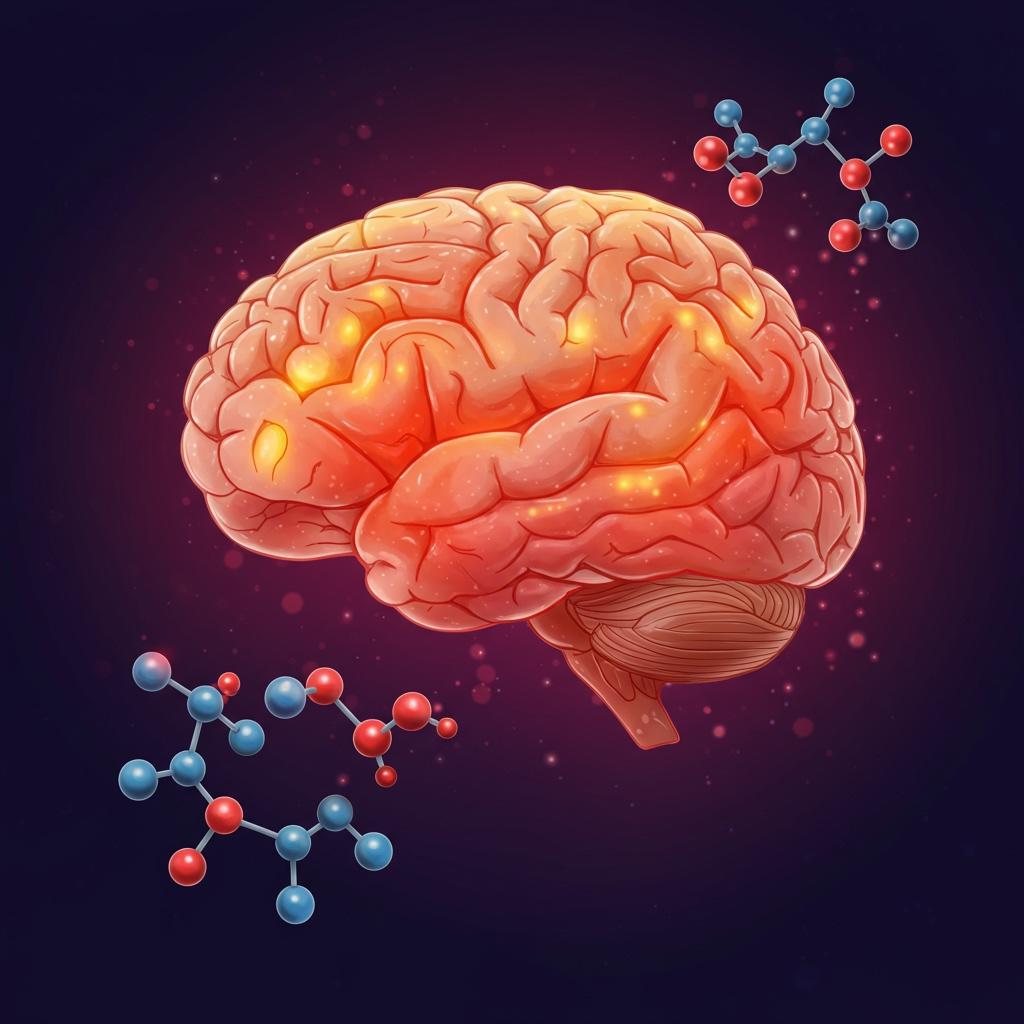The Chemistry of Love: Dopamine, Oxytocin, and Attraction
The Chemistry of Love: Dopamine, Oxytocin, and Attraction
By Peter Teoh, Science Writer
 Brain activity during love lights up reward and bonding centers, driven by dopamine and oxytocin.
Brain activity during love lights up reward and bonding centers, driven by dopamine and oxytocin.
Introduction
Have you ever wondered why your heart races when you see someone you like, or why hugs and close moments feel so comforting? Love isn’t just about feelings—it’s also about chemistry happening inside your brain. Scientists have discovered that special chemicals like dopamine and oxytocin play huge roles in how we experience attraction and form bonds. Let’s take a closer look at the fascinating science behind love!
What Happens in Your Brain When You Fall in Love?
Love lights up your brain in a way that’s similar to how your brain reacts to rewards and pleasure. When you meet someone you’re attracted to, your brain releases dopamine, often called the “feel-good” neurotransmitter. Dopamine floods your brain’s reward centers, giving you a rush of excitement and euphoria—kind of like the pleasure you get from your favorite game, music, or even certain drugs (but love is way healthier!). This dopamine surge motivates you to seek out that person again and again[1][3][5].
At the same time, your brain releases oxytocin, nicknamed the “love hormone” or “cuddle hormone.” Oxytocin is especially important for deep connections. It’s released during physical touch like hugging, kissing, or holding hands, and it helps you feel trust and closeness with others. This hormone supports long-term bonding, like the connection between parents and children or romantic partners[1][2][3][5].
The Rollercoaster of Early Love
When you first fall for someone, your brain chemistry changes a lot. Besides dopamine and oxytocin, your serotonin levels drop, which might explain why new love can feel obsessive—you can’t stop thinking about that person! This drop also triggers the release of cortisol, the stress hormone, causing physical symptoms like a racing heart or butterflies in your stomach[1][4].
As the relationship matures, serotonin tends to stabilize, and oxytocin helps shift your feelings from passionate infatuation to calm attachment and trust. This is why early love feels intense and sometimes overwhelming, while long-term love feels secure and comforting[1][3][4].
More Than Just Two Chemicals
While dopamine and oxytocin are stars of the love story, other chemicals like vasopressin also play important roles. Vasopressin has been linked to long-term, monogamous relationships and behaviors that support bonding and protection[3][5]. Together, these chemicals create a complex system that shapes how we connect, trust, and care for others.
Interestingly, love even affects areas in your brain responsible for judgment and fear. When you’re in love, these parts quiet down, which might be why people say “love is blind.” This neurological effect helps you see your partner in a positive light and take social risks to deepen your relationship[5][9].
Why Does Love Matter?
Beyond just feeling good, the chemistry of love has important effects on our health and wellbeing. Oxytocin can reduce anxiety and stress, dopamine boosts motivation and happiness, and being in loving relationships has been linked to longer life and better immune function[4][6]. So, love isn’t just an emotion—it’s a powerful biological force that shapes who we are.
Closing Thoughts
Next time you feel those butterflies or the rush of happiness around someone special, remember your brain is hard at work releasing a cocktail of chemicals like dopamine and oxytocin. These natural substances help you bond, trust, and build relationships that can last a lifetime. Love truly is chemistry—and now you know the science behind the magic!
Side Notes
- Dopamine: A neurotransmitter that motivates you to seek pleasure and rewards.
- Oxytocin: A hormone boosting trust, bonding, and emotional connection.
- Serotonin: Regulates mood and obsession during early love stages.
- Cortisol: The stress hormone causing physical symptoms of nervousness.
Trending Sidebar
- Love and the Immune System: Recent studies show falling in love can strengthen women’s immune defenses[4].
- Sweaty T-Shirt Study: Women prefer the scent of men with different immune system genes, possibly to create healthier babies[4].
- Brain Scans of Love: MRI scans reveal specific brain regions light up when people see their loved ones[3][5].
References
- The Neuroscience of Love and Connection - Pacific Neuroscience Institute
- The Science of Love & The Hormones That Help You Fall in Love - Calm
- The Chemistry of Love - Chemistry World
- The Science of Love At First Sight - Royal Institution
- Love and the Brain - Harvard Medical School
- Oxytocin and Love: Myths, Metaphors and Mysteries - PubMed Central
Leave a comment